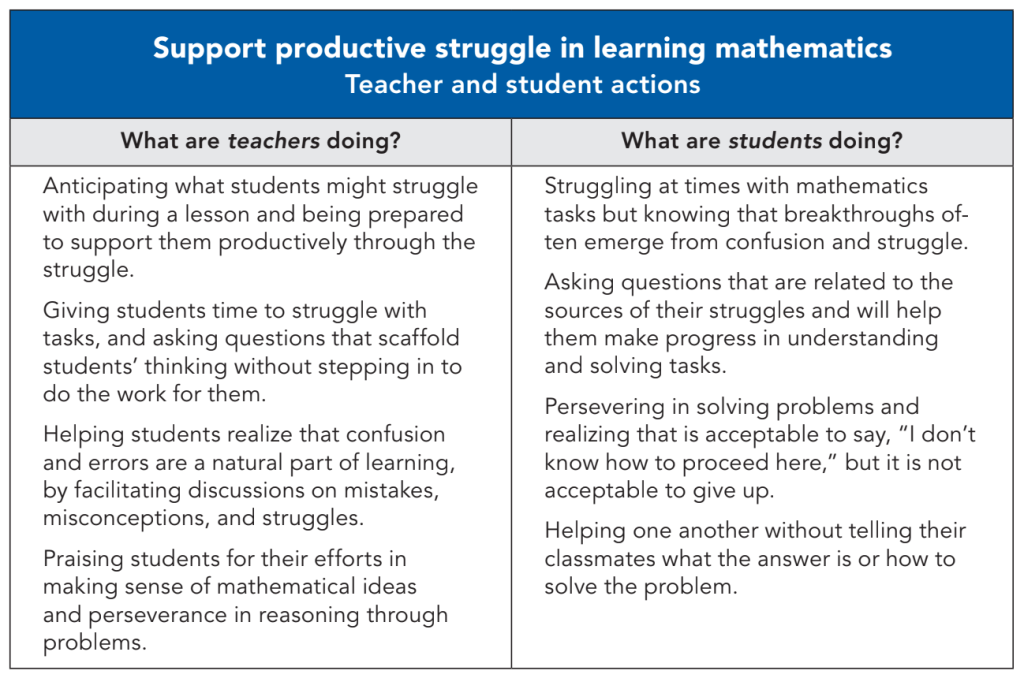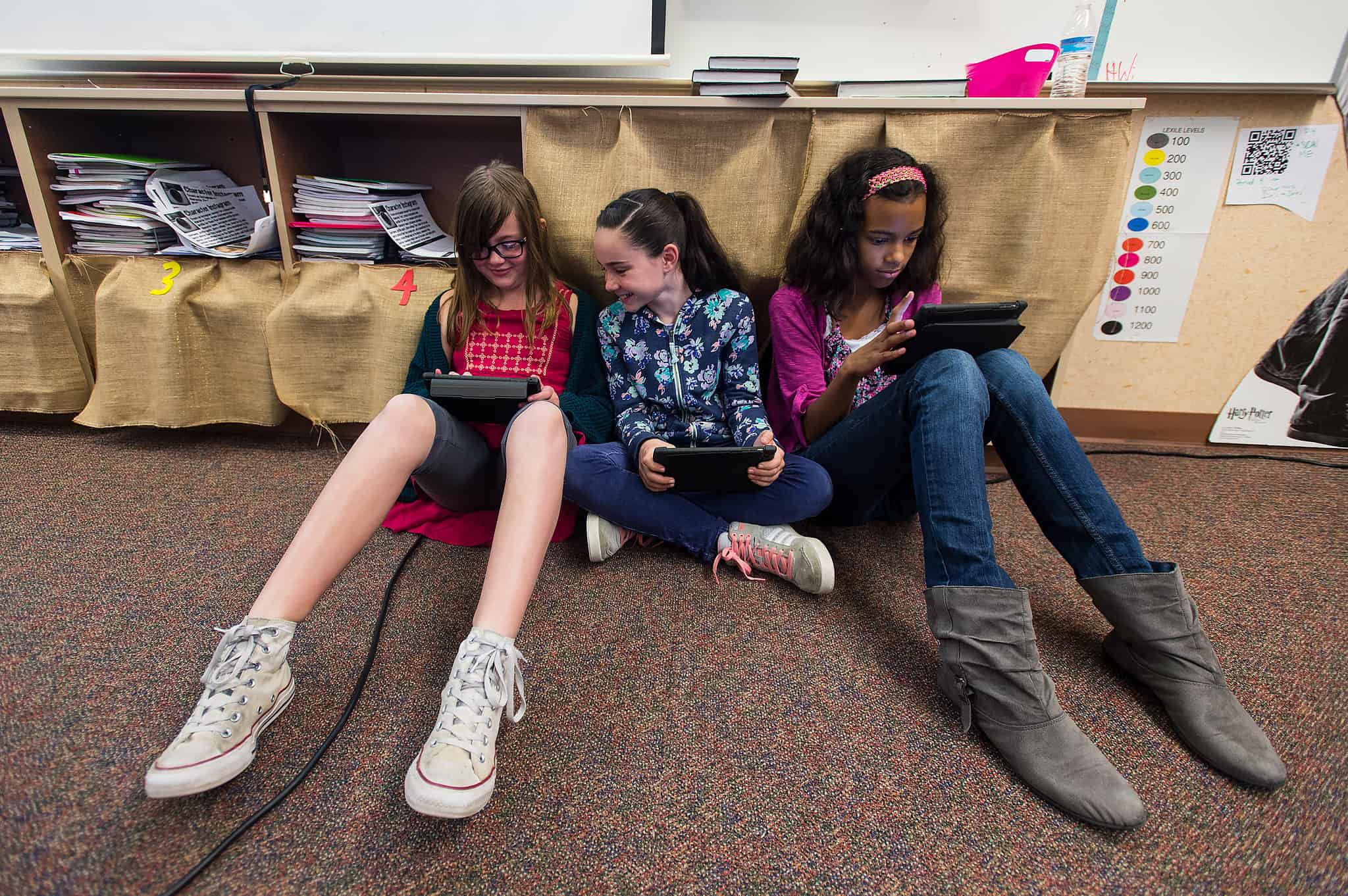February/March 2024
Increasing Student Independence
As we enter the 3rd Trimester, what scaffolds and supports might we gradually remove as students continue to gain greater independence in demonstrating their learning? How might we continue to access instructional resources and district progress monitoring tools to maintain, verify, and accelerate the ambitious, yet attainable growth goals for all students? If targeted reteaching and content prioritization are necessary in supporting achievement with grade level expectations, consider the priority evidence outcomes identified in our Unit Plans that specify the most essential skills and concepts for each grade in ELA, math, and social studies.
Designing Learning Environments that Foster Student Belonging and Academic Growth
Join us on Wednesday, March 6 (4:30 – 6:30 PM) for a session with Dr. Robert Dillon. This session looks at how the design of learning spaces can have a significant impact on how students experience learning. With the things that already exist, teachers and leaders can bring new energy to learn, support active learning and provide the elements needed for effective mind-brain education. Leave this session with ways to bring a sense of belonging to your space as well as ways to promote additional engagement for all students. If you are interested in attending, please register here.
Math Updates
enVision Mathematics ©2024 Pilot Interest
Members of the Elementary Math Adoption Committee and their grade level teams will have the first opportunity to pilot enVision Mathematics ©2024 during the 2024-25 school year. Schools not represented on the adoption committee will be solicited for specific teachers/teams that wish to pilot. If you have interest in piloting, please fill out this form by Friday, March 29.
Perseverance, Reasoning, and Productive Struggle
Thriving in mathematics includes persevering with unfamiliar, multi-step tasks and using reasoning to determine the validity of processes or solutions. Neither of these are possible, however, without opportunities for students to engage in productive struggle. As part of the learning process, productive struggle ensures students actively learn and understand math instead of passively mimicking teacher-demonstrated procedures. This is in alignment with another one of the Mathematics Teaching Practices from NCTM:

Assessments are an opportunity for students to reap the benefits of productive struggle. If the revised Topic Assessments and CMAS are assessing thinking and application of skills, then productive struggle opportunities during lessons (i.e. the Solve & Share) are low-stakes ways of setting students up for success.
Distributed practice & ongoing mixed review supports students in remembering concepts from the fall. In addition to the Daily Common Core Review in enVisionmath2.0, a collection of tasks are linked in most Unit Plans under “Additional Assessment Tasks.” These tasks can serve as meaningful retrieval practice opportunities for current and earlier Topics, along with elevating reasoning and problem solving for CMAS.
ELA Updates
Supporting Comprehension Through Background Knowledge
It is an established fact that “having prior knowledge of a topic has a strong positive effect on reading comprehension” (Wexler, 2021). Of critical importance, is ensuring that students have access and opportunities to build background knowledge on topics that they are reading about. All texts that students will encounter are constructed with a connection to topical knowledge. Let’s take, for example, Stellaluna, by Janell Cannon. In this story, a fruit bat becomes separated from her mother and finds her way to a nest of birds. She is adopted by them and comes to learn bird-like behavior. To fully understand Stellaluna’s experiences, struggles, and motivations, readers will benefit from background knowledge on fruit bats and birds. But what if our students lack this background knowledge? Will they come to the same conclusions about the text’s overall meaning, its central message, or an understanding of its characters and their struggles?
Background knowledge is not the sole contributor to comprehension. Rather, comprehension is an “orchestrated product of a set of linguistic and cognitive processes operating on text and interacting with background knowledge, features of the text, and the purpose and goals of the reading situation” (Castles et al, 2018). That being said, background knowledge IS something that teachers can influence.
How do we do this? By providing our students with access to additional texts that build their knowledge of topics, concepts, and vocabulary encountered in curriculum-based texts (ReadyGEN anchor and supporting texts, for example).
Where can we find these additional resources? St. Vrain provides teachers and students access to additional reading materials to support their knowledge-growing experiences. eBooks in World Book is a perfect place to start – and the GREAT news is that this resource is available to ALL of our students in St. Vrain!
Watch this SHORT video for information on eBooks in World Book along with a how-to in providing access to students. For additional information on Databases available to teachers and students, contact Helen Robbins, DLMS District Instructional Librarian, at [email protected]
Social Studies Updates
Making Thinking Visible in the Social Studies Classroom
Recent research suggests the importance of building content knowledge with our youngest students to support reading comprehension. We can do this systematically through social studies. Project Zero, from the Harvard Graduate School of Education, has done extensive research on making thinking visible. Their work can be defined as “flexible and systematic research-based approach to integrating the development of students’ thinking with content learning across subject matters. An extensive and adaptable collection of practices, the Visible Thinking research has a double goal: on the one hand, to cultivate students’ thinking skills and dispositions, and, on the other, to deepen content learning.” In an effort to “deepen content learning” and increase reading comprehension in the elementary grades, a collection of thinking routines could benefit your classroom. Check out this Thinking Routine Toolbox for teachers. These research-based strategies and protocols will help deepen your students’ thinking and understanding of the social studies content, thus increasing their vocabulary and comprehension of informational text.
March is Women’s History Month! This year’s theme is “Women who advocate for equity, diversity, and inclusion.”
Women’s history is OUR history and should be taught throughout the year. However, March is a great time to celebrate the contributions and histories of trailblazing women. Here is a document with curated resources you might consider using in your classroom.
Summer Professional Development for K-12 Social Studies Teachers
Now is the time to be thinking about summer professional development! Are you interested in participating in social studies workshops/classes across the globe? Check out this extensive list of opportunities. Many of them are open to K-12 teachers and are free or provide a stipend. Check out the list here.
Science Updates
The Power of Perseverance – Implementing New Standards Takes a Long Time
When implementing new science standards, it’s easy to get overwhelmed. A new On the Same Wavelength blog explores ideas for ensuring we keep moving toward our goal of implementing 3-dimensional science Instruction in every St. Vrain classroom.
Goals/Five Principles to Review
- Remember the “why”
- Break your goals down
- Start small
- Identify and remove (or work around) obstacles
- Celebrate small (and big) wins
Additional Resources
- Review the Daily “Look-Fors” Document (This document is great for both teachers and administrators)
- Office Hours – Please let me know if you would like time to connect and discuss the new materials or standards. I can meet for several minutes online when you have time. I will work around your schedule.
Professional Development Opportunities
The following classes are available for registration through the Office of Professional Development. All classes are in-person unless otherwise noted.
- Culturally Responsive Instruction of Native American Students (asynchronous course; 1.5 credits)
- Designing Learning Environments that Foster Student Belonging and Academic Growth (Wednesday, March 6; 4:30 – 6:30 PM; 0.25 credit)
- Developing Number Sense in K-2 within 5, 10, and 20 (Saturday, March 9; 8:00 AM – 4:00 PM; 0.5 credit)
- Essentials in Evidence-Based Literacy Instruction (new course sections now available; 2 credits)

Contact Us!
Karen Smith
K-5 Language Arts Coordinator
303-702-7746
[email protected]
@smithkaren51 & @SVVSDLA
Mike O’Toole
K-12 Science Coordinator
303-682-7232
[email protected]
@SVVSDScience
Greg George
K-12 Mathematics Coordinator
303-682-7247
[email protected]
Visit Math News & Updates
@SVVSDMath
Jenny Pettit
K-12 Social Studies
Coordinator
303-702-7547
[email protected]

